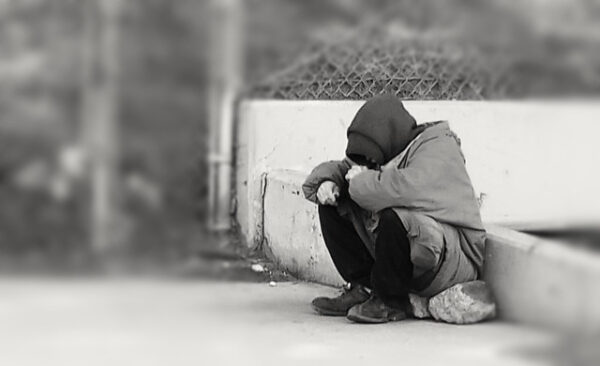Substance abuse disorder is a dangerous condition that affects the physical and mental well-being of an individual. It is the uncontrollable use of addictive substances that disrupt a person’s productiveness and ability to perform daily functions. Contrary to popular belief, addictive substances include not just illicit drugs, but also alcoholic beverages, which young and old Americans consume and enjoy. When the use of substances becomes frequent and long-term, it may eventually result in the disorder – one that needs treatment in a professional substance abuse rehab program.
When substance abuse disorder is left untreated, it may cause severe health repercussions. Aside from causing depression and anxiety, it even increases the risk of heart diseases. Fortunately, there are signs and symptoms to look out for that can help us find out if a loved one is suffering from addiction. However, in order to help them, it is important first to be aware of the complexities of substance abuse disorder.
What is substance abuse disorder?
According to the National Institute on Drug Abuse, substance use disorder is the compulsive drug-seeking behavior that can cause significant changes in the brain. It is the addiction towards the sensations, euphoria, and relief that illicit drugs and alcohol are able to provide the user. There are various substances that, if not used in moderation, can result in their abuse. This then causes the user to get into substance addiction. People with this type of addiction commonly abuse the following substances to experience euphoria and relief after heavy consumption:
Commonly-Abused Substances
— Illicit drugs. Illicit drugs include substances that are not permitted to be owned in most states. These include heroin, marijuana, ecstasy, meth, and LSD, commonly known as acid.
— Alcohol. The alcohol compound can be found in any alcoholic beverage. These include wines, spirits, and beers. With its accessibility, it is important to discourage underage drinking among young individuals, like students and our children.
— Prescription drugs. Prescription drugs include medicines that can be obtained over the counter, regardless of their potency and mental effects.
— Opioid drugs. Opioids are drugs that have the properties of painkillers. They are triggered through the mechanism of brain receptors. They mainly function to relieve pain, similar to morphine and anesthesia.
While there are multiple types of drug addiction, each of them can still harm the brain, in terms of its structure and functions.
Mental Health Issues Associated With Drug Addiction
With drug addiction being a mental illness and a brain disorder, people often ask whether substance abuse causes bipolar disorder. Answering this common question, substance abuse can initiate the development of ranging mental illnesses. From bipolar disorder to an increased tendency for violence, and anxiety, many complications can arise from simply consuming substances with evident risk. Below is a list of mental health issues closely associated with drug addiction.
— Depression and anxiety
— Behavioral disorders
— Bipolar and mood disorder
— Dissociative disorders
— Eating disorders

As it is evident that substance use disorder causes complications in mental and physical health, it is important to treat the illness as soon as possible, with the guidance of professionals. However, since drug use is quite difficult to detect, most cases turn into full-blown relapse-guaranteed addiction. In hopes of preventing this from happening, knowing the symptoms, and being on the lookout, can potentially help people suffering from it.
What are the symptoms of substance abuse disorder?
Substance abuse disorder symptoms vary per individual. As people have different brains, they also have varying reactions towards compounds and substances. For instance, a young individual taking illicit drugs may display heightened emotions, while an older person suffering from the same disease may show a loss of motivation in doing everyday activities. However, it is important to note that prominent symptoms often affect the emotions, behaviors, and cognition or mental ability of the person.
Below are the common symptoms of substance abuse disorder:
Mental and Behavioral symptoms
— Sudden changes in emotions, feelings, and mood
— Loss of interest and motivation towards previously loved activities
— Decline in self-care
— Drop in performance in school or work
— Slower processing of information
— Inability to solve complex problems
— Secretive and dishonest behavior
Physical symptoms
— Inability to sleep or oversleeping
— Restlessness and irritability
— Tremors and sweaty palms
— Irregular heartbeat
— Organ pains
— Deteriorating physical health
It is important to watch out for these signs, as untreated chronic addiction can result in further complications, affecting the quality of life of our loved ones. Being able to detect the symptoms, and being able to encourage them to seek help can already go a long way in trying to give them another chance at a productive life. Noticing the changes happening among our family members can already mean starting their journey towards recovery as soon as possible.
How can behavioral disorder counselors help treat substance abuse?
The process of recovery inside rehabilitation centers and treatment spaces is not easy. From drug withdrawal to relapse tendencies, there are multiple phases that will definitely be mentally draining and physically uncomfortable for the healing individual. Thus, this is where behavioral disorder counselors come in. They are professionals who guide and advise people who suffer from drug and alcohol addiction.

In some way, behavioral disorder counselors are your partners in addiction recovery. They provide support and recommend treatment plans for individuals. In addition, they facilitate support groups for people going through the same journey. Drug counselors also teach how to cope with new life stressors, as long-term sobriety is the goal of quitting substance abuse.
How does your counseling gradually help you achieve inner healing?
Counseling goes beyond treating drug addiction. It also includes learning how to integrate people back into the productive and sober community. Counseling allows individuals to have a support system that helps them achieve their recovery goals, in a realistic yet compassionate way. For instance, they may advise how to restore broken relationships affected by the addiction problem.
In addition to the guidance during formal detox in rehabs, counselors communicate with the families of recovering individuals and teach them how to help their loved ones, once inpatient treatment is finished. The presence of counseling, from the pre-rehab phase to post-treatment recovery, ensures that the healing is holistic, and withdrawal will be prevented.
In conclusion, achieving inner healing and complete recovery needs the support of every individual possible. From family members to healthcare professionals, being there for people who want to change can make them feel that they are not alone in their battles. Also, by simply being informed about drug abuse, we can already encourage our loved ones to seek help. Therefore, it is essential to let them know that recovery is never too late for them
We Are Here To Help
At Buena Vista Health and Recovery Centers, Tucson’s best addiction treatment center, we provide personalized treatment for drug addiction. Our programs do not focus solely on treatment, but also on prevention and reintegration into the community. We believe that everyone deserves another chance at a productive life.
If you or someone you know is seeking rehab, get in touch with one of our addiction professionals today. Give us a call at (800) 922-0095 or visit our detox center for substance abuse in Arizona in 5151 E Pima St, Tucson, AZ 85712




